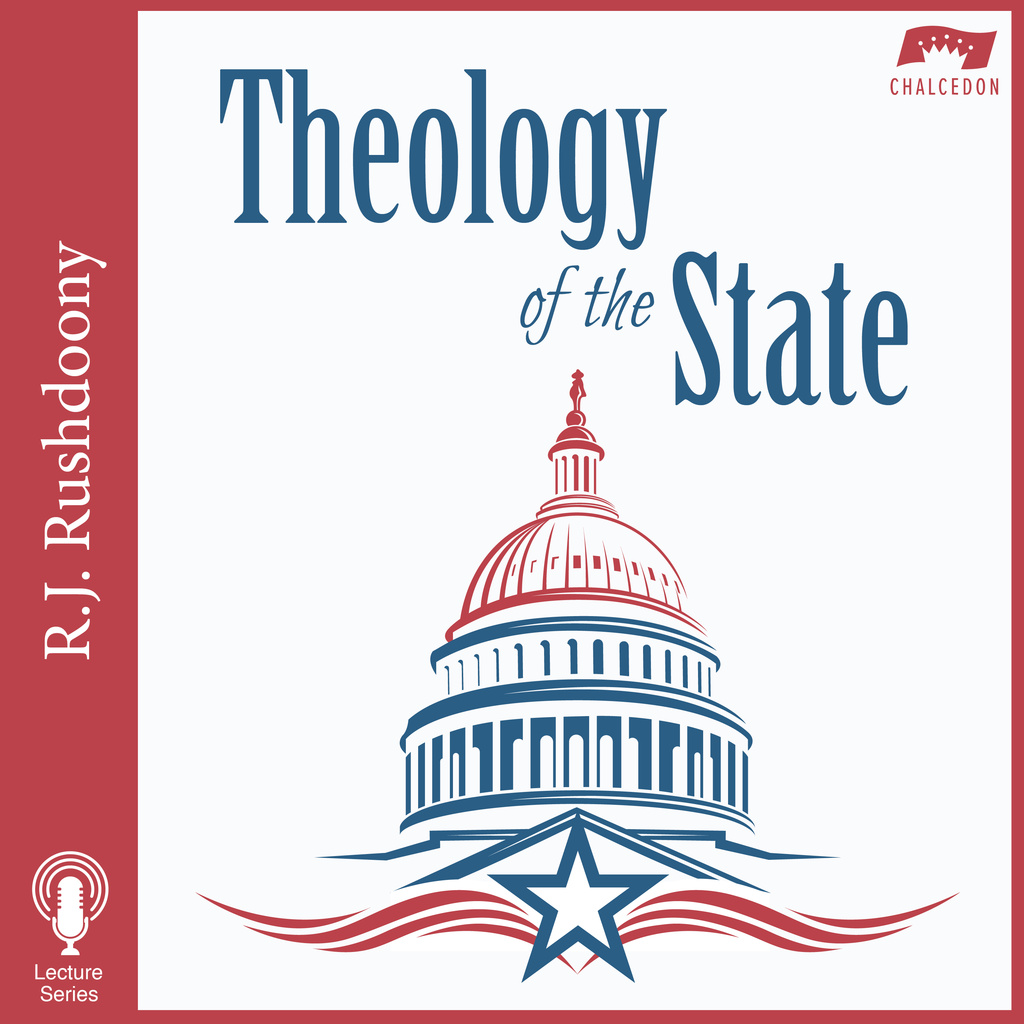
The Need for a Theology of the State
We must have a theology of the state. It is a biblical necessity, because our Lord Jesus Christ is a sovereign Lord. Psalm 2 tells us that the “heathen take counsel, or conspire together against the Lord and his anointed, saying, Let us break his bands asunder.” Now, the term “bands” there means law. Revolution against a king is revolution against his government, his law, so the nations say, concerning God, “Let’s break the bondage of his government and his law,” but the Psalmist tells us, “He that sitteth in the circle of the heavens shall laugh. The Lord shall have them in derision.”

- R. J. Rushdoony
We must have a theology of the state. It is a biblical necessity, because our Lord Jesus Christ is a sovereign Lord. Psalm 2 tells us that the “heathen take counsel, or conspire together against the Lord and his anointed, saying, Let us break his bands asunder.” Now, the term “bands” there means law. Revolution against a king is revolution against his government, his law, so the nations say, concerning God, “Let’s break the bondage of his government and his law,” but the Psalmist tells us, “He that sitteth in the circle of the heavens shall laugh. The Lord shall have them in derision.”

- R. J. Rushdoony
Rev. R.J. Rushdoony (1916–2001), was a leading theologian, church/state expert, and author of numerous works on the application of Biblical law to society. He started the Chalcedon Foundation in 1965. His Institutes of Biblical Law (1973) began the contemporary theonomy movement which posits the validity of Biblical law as God’s standard of obedience for all. He therefore saw God’s law as the basis of the modern Christian response to the cultural decline, one he attributed to the church’s false view of God’s law being opposed to His grace. This broad Christian response he described as “Christian Reconstruction.” He is credited with igniting the modern Christian school and homeschooling movements in the mid to late 20th century. He also traveled extensively lecturing and serving as an expert witness in numerous court cases regarding religious liberty. Many ministry and educational efforts that continue today, took their philosophical and Biblical roots from his lectures and books.